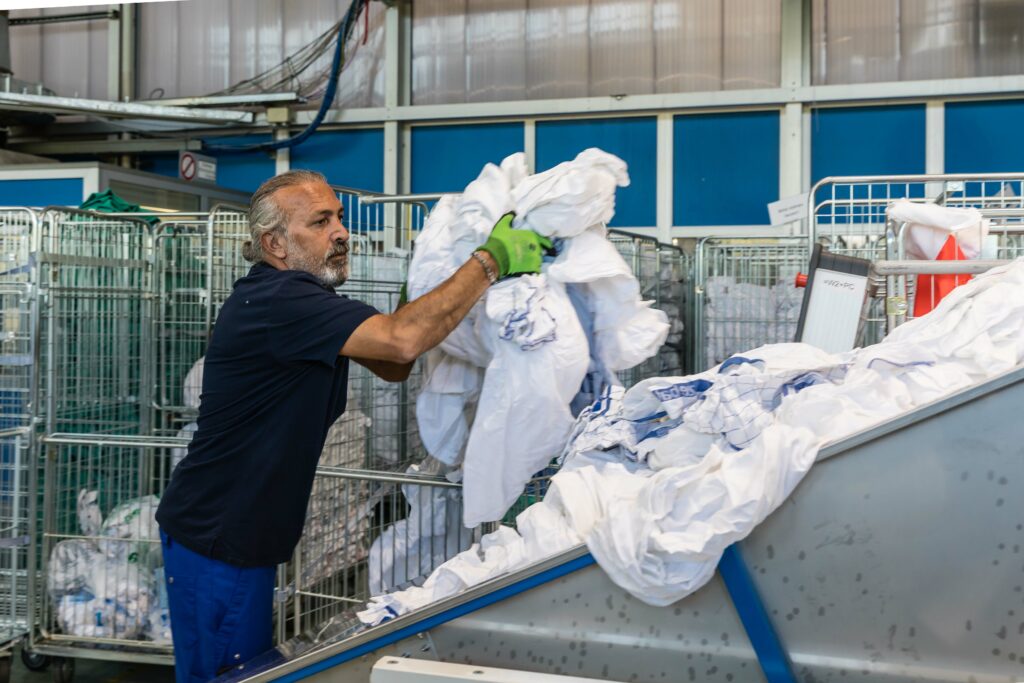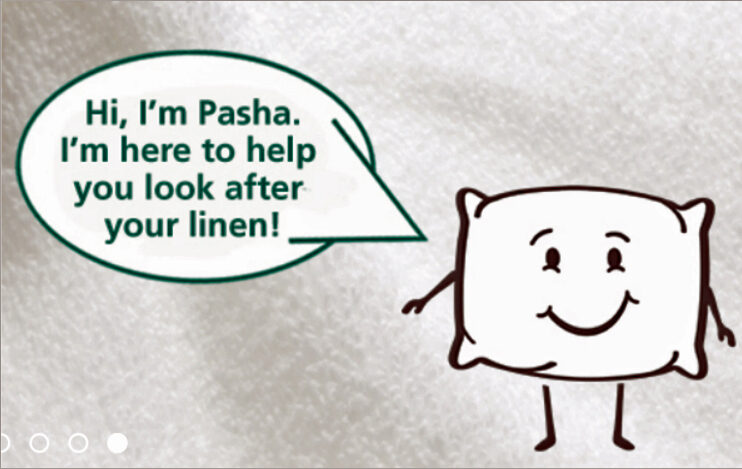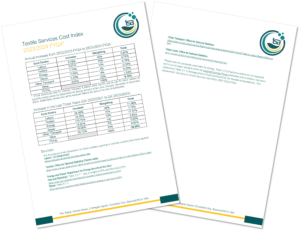The TSA’s textile sustainability mascot is making friends and influencing people
It’s been a few months since the Textile Services Association introduced the mascot Pasha the Pillowcase to the world. Pasha has the mission of educating staff in the hospitality and laundry sectors about the importance of handling linen correctly as part of the drive for sustainability. With about 61% of the industry’s annual stock of linen being lost each year, finding ways to reduce this will play a vital part in reaching Carbon Net Zero targets for both sectors.
Since the Pasha video was launched, it has been taken up by some of the largest hotel, leisure and laundry groups as a key part of staff training and has been getting great feedback as a useful way of illustrating the importance of this issue.
We caught up with a few of the people who’ve been making use of the training materials featuring Pasha to help train staff.
Fernanda Lewis is executive housekeeper at London’s Goring Hotel as well as the UKHA’s London chair. “I thought it was so innovative, I’ve never seen a training video like it,” she says. “The TSA has managed to present the issue of sustainability and how it applies to the day to day work of hotel staff in a fun but understandable way.
“I’ve been encouraging my peers in the industry to make it a part of the training they provide staff, as it’s a great way to make them aware of the importance and value of linen and why we have to care for it.”
Vitalija Agarwal is Customer Projects Manager at CLEAN, but had used the Pasha video in her previous role as head of customer services at Aeroserve, a company specialising in providing laundry services for the healthcare and hospitality sectors. “It’s great to have a training resource like this that is easy for staff who can’t read or speak English fluently to understand,” she says. “It puts a smile on everyone’s faces, it’s a positive message which really helps in making it effective.”
In fact, Pasha was such a hit at Aeroserve that they have begun using it in other ways to help spread the message of the need to look after linen. “The production team had the idea to print out a picture of Pasha and stick it on every laundry box on its way back to our customers,” says Vitalija. “It’s a fun way to remind people of the correct way to handle textiles!”

Nigel Graham at Bourne Leisure, one of the UK’s leading hotel and holiday companies. “Finding ways of improving the sustainability of our business is one of our biggest priorities,” he says. “With Pasha, the TSA has created something that quickly and concisely explains a complex but important issue and shows why everyone should be mindful of the importance of correctly handling and looking after linen and textiles. We started to implement it within our training procedures and are also carrying out a case study to see how this hopefully is helping to reduce the amount of linen loss we see at our parks”

The environmental and financial consequences of prematurely lost or damaged linen in the UK’s hotel industry are substantial. To replace the 12.5 million pieces of linen lost within the hotel industry with fresh linen would generate 39,000 tonnes of carbon, and require the equivalent of 937 bathtubs of water to grow the cotton. Ensuring that the textiles have as long a working life as possible can have a significant impact on the sustainability of any business that relies on it, and has been one of the TSA’s strategic priorities for many years. The Pasha initiative is just one of the ways it has been working with its members and the industries they serve to help reduce loss of linen stock and the need for fresh material to replace it.
“This is critical issue in the hospitality sector,” says Fernanda. “Solving it will have to be a collaborative process, and this wonderful resource the TSA has made makes it easy for hotels of any size to integrate the message into their staff training.”
Vitalija agrees. “Until now there’s been very little information about sustainability of linens available to us. There’s no easy overnight solution, but the Pasha video is a great way to raise awareness of the problem and helps to begin creating the knowledge and mindset needed to reduce unnecessary product loss,” she says.
“The urgency of finding ways to improve sustainability within our industry isn’t going to diminish,” says Nigel. “A lot of people aren’t aware of the environmental impact of textile production, but thanks to the TSA and Pasha we now have a simple way to raise staff awareness of the issue.”
The TSA has continued to introduce Pasha and how it can help improve sustainability at UKHA meetings for the southeast and northwest regions, as well as at its Hospitality round table meeting where more major hotel groups confirmed they are looking to begin implementing the videos as part of their training.
The Pasha videos can be found on the TSA’s website, alongside its ever growing range of educational and training resources.
If you have any queries, please do not hesitate to get in touch with us either via email or phone:
T +44 (0) 20 3151 5600



